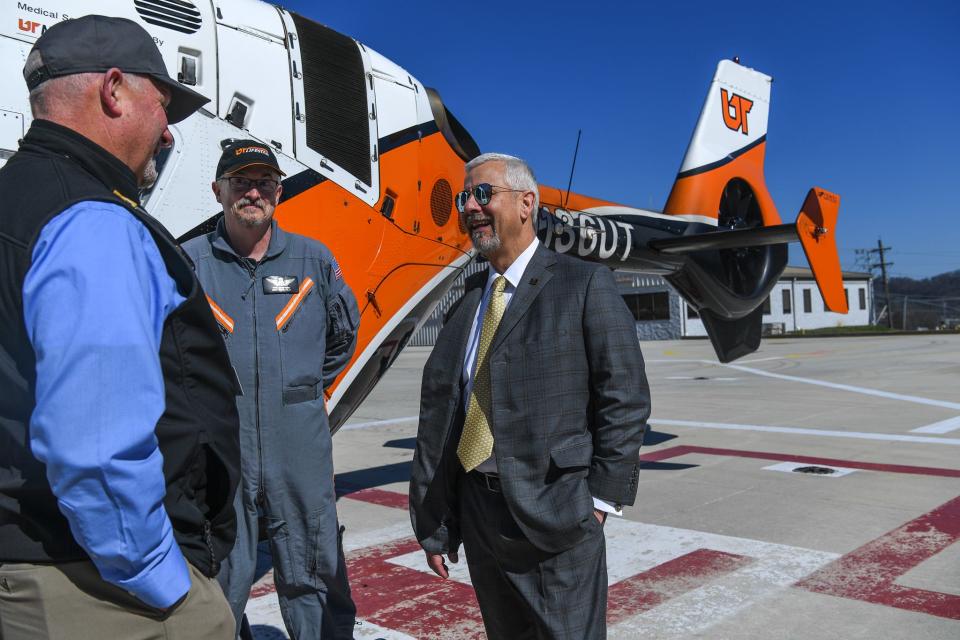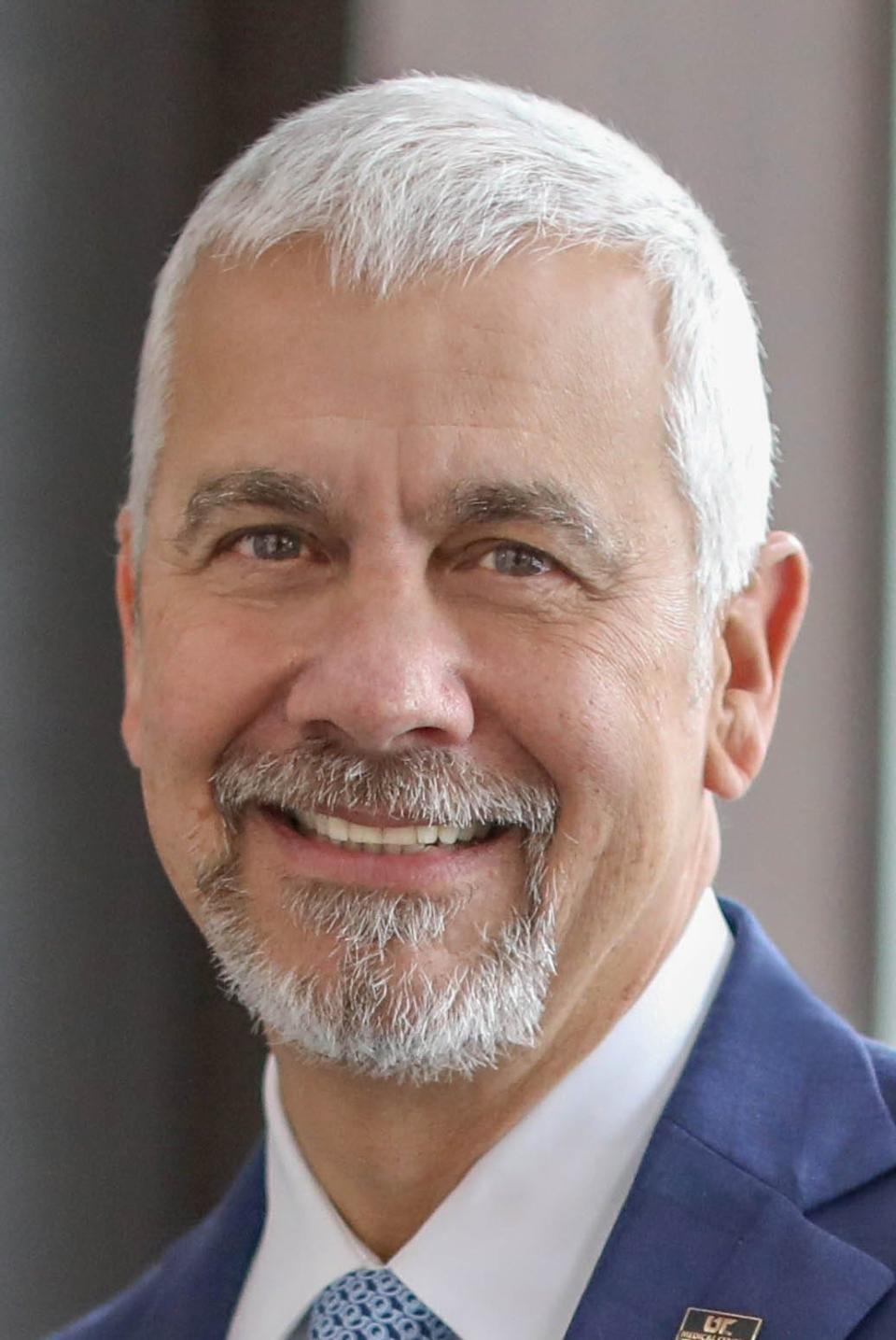Foundation laid for physician-led future at UT Medical Center | Opinion
When I joined the University of Tennessee Medical Center 25 years ago, the organization was just beginning its journey from being known as Knoxville’s “teaching hospital” to becoming a nationally recognized academic health system. We have been fortunate to have a wonderful group of leaders, thousands of team members and a board of directors committed to our community who collectively enabled this incredible transformation.
It was clear to us early on that we needed better internal processes along with an expansion of facilities and services to fulfill our commitment and responsibility as the region’s academic health system. Our goal was to become the region’s leading health system, ultimately working toward improving the overall health of East Tennesseans across our community. We have made tremendous progress. Now is the time for a new era of excellence in healing, education and discovery under a physician-led model — working in close collaboration with established business leaders — to maintain and continue our progress.

Expansion of specialties, treatments and services increases accessibility
As an academic health system, we have a responsibility to expand our range of providers, treatments and services to meet our community’s needs. Our culture is patient-centered, and our true north is to transform the health of people in our region. To that end, the medical center offers innovative, unique services — some of which were introduced during the COVID-19 pandemic — including deep brain stimulation, transplant and cellular therapy, and extracorporeal membrane oxygenation. By expanding the specialties, treatments and services offered to our patients, we can ensure there is an accessible option for the community, meaning patients can receive excellent care locally versus having to travel.
Furthermore, we’ve manifested a clinically integrated plan of care based on evidence and science-based medicine. In fact, the medical center has transformed the health care delivery system by creating clinical pathways that span the entire continuum of care.
Strategic and intentional: UT Medical Center CEO Joe Landsman retires after 25 years of unrelenting growth
Expanding access to high-quality health care is another benchmark of an academic health system. The medical center’s growth has been both strategic and intentional. We’ve opened regional health centers in Sevierville, Lenoir City, Morristown, Northshore Town Center and Halls and urgent care clinics in Sevierville, Lenoir City and Seymour. There’s also a freestanding emergency department in Jamestown and, coming soon, an infusion center in Blount County. We serve 21 counties through regional health centers, urgent care locations, primary care and specialty practices. As East Tennessee grows, so grows our network of unique facilities designed to meet the needs of the communities we serve.
We're educating future physicians and nurses
An academic health system is also responsible for the education enterprise in order to provide our region with future health care providers. The medical center is fulfilling that sacred obligation through residency programs and post-residency fellowships. I’m proud of the incredible progress we’ve made on this front, now offering 11 residency programs and growing our post-residency fellowships from three to 17, with plans to expand even further in the future. We’re recruiting and training the doctors who will provide compassionate care throughout our system as well as in other hospitals across the region. We have 230 residents and fellows at the medical center. We’re providing future physicians to our growing community, ensuring the quality of care for people who live and work right here in East Tennessee.
Another way the medical center is actively engaged in the education of future caregivers is through the BSN Scholars program. This academic-practice partnership with the University of Tennessee’s College of Nursing provides free education to nurses in exchange for a three-year work commitment. It’s a UT Bachelor of Science in Nursing degree program that is funded by the medical center and is just one example of the ways we continue to partner with Tennessee’s flagship university. Together we’re addressing the endemic nursing shortage and establishing the highest standard of training for nurses in our area.
A new era: How Dr. Keith Gray plans to build patient trust as UT Medical Center's next leader
Dr. Keith D. Gray, a veteran of our system, is ready to take over
My successor as president and CEO, Dr. Keith D. Gray, is an academic surgeon who tirelessly advocates for a healthy community and mentors those pursuing health care careers. Furthermore, he’s a veteran of our system, having practiced surgical oncology at the medical center for 16 years and serving as chief of staff in 2012. He’s also a seasoned businessman with a master’s degree in business administration from UT’s Haslam College of Business and experience as the medical center’s president, executive vice president and chief medical officer.

I’m so grateful to the Knoxville community for welcoming my wife, Ronda, and me with open arms 25 years ago. Knoxville has become our home. I’m proud to have been part of the ongoing success of our region’s academic health system. And I know you’ll join me in supporting Dr. Gray as he leads the organization into the future.
Joe Landsman is the CEO of the University of Tennessee Medical Center.
This article originally appeared on Knoxville News Sentinel: Opinion: Foundation laid for physician-led future at UT Medical Center

